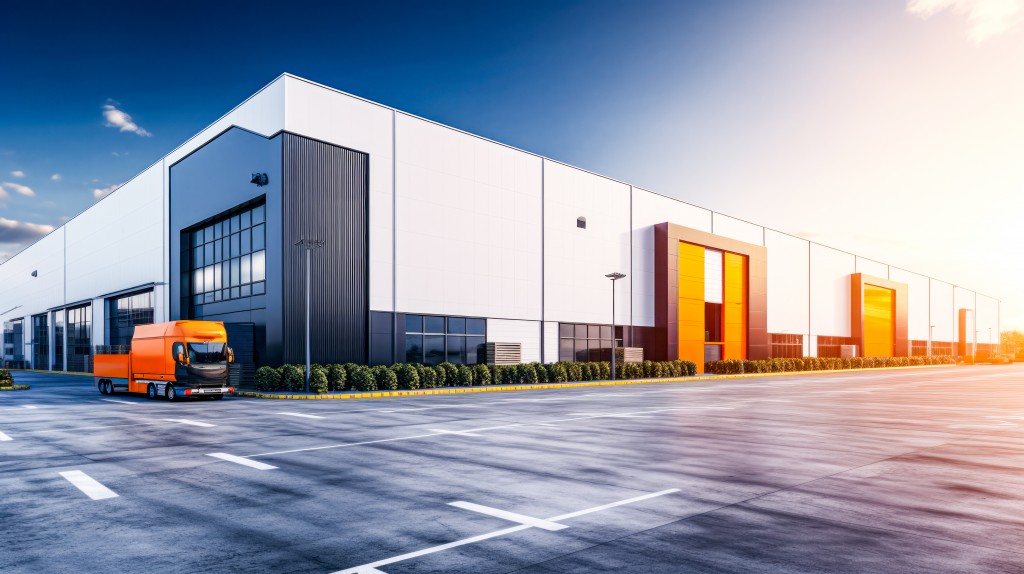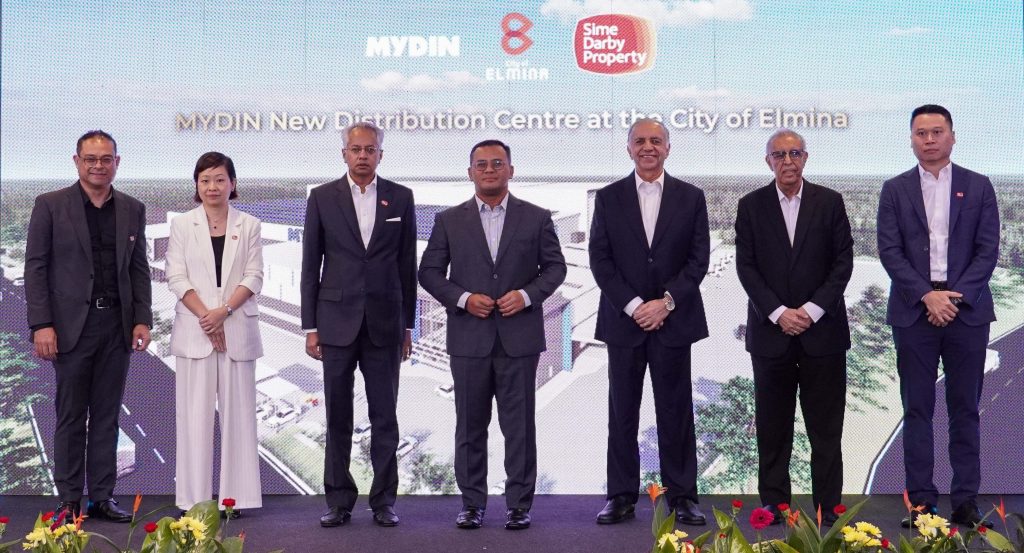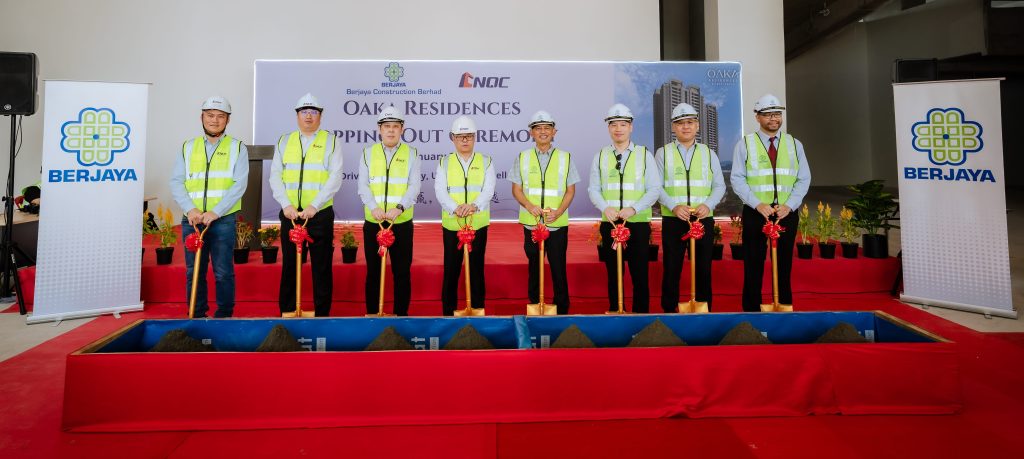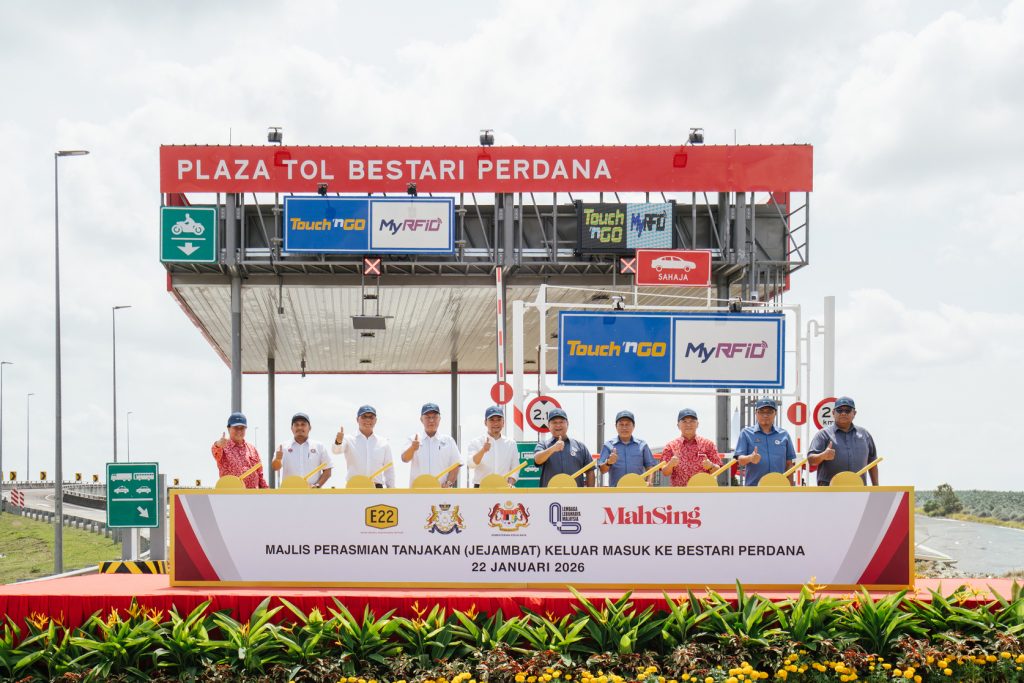The sector is seeing a solid CAGR of 3.99%
By Joseph Wong
As a backbone of a thriving economy, Malaysia’s logistics industry is entering a new era of robust and sustained expansion. The market, which was valued at US$23.82bil (RM100.26bil) in 2024, is not only holding its own against global uncertainties but is projected to soar to US$33.87bil (RM142.56bil) by 2033, with a solid compound annual growth rate (CAGR) of 3.99%.
This remarkable growth is not by chance. It is the result of a powerful confluence of factors, from the explosive rise of e-commerce to strategic government support and the country's unparalleled geographical advantages, that push Malaysia forward as a regional logistics powerhouse.
Ironically, the Covid-19 pandemic and the resulting Movement Control Order (MCO) acted as a significant catalyst for the Malaysian logistics industry. While the MCO was in effect from June to August 2020, people's behaviours shifted dramatically. With strict standard operating procedures (SOPs) in place, including physical distancing and contact tracing via the MySejahtera app, many people opted to work from home and avoid crowded public spaces.
This change in lifestyle directly fueled a surge in online shopping. Businesses, both new and old, quickly adapted by establishing an online presence on platforms like Shopee, Lazada and their own websites to meet this demand. The rapid growth of e-commerce created new opportunities for the logistics sector, which was tasked with handling the immense volume of deliveries and last-mile fulfilment, ultimately driving its expansion.
Engine of growth
The logistics industry's current success can be attributed to several interconnected factors, each playing a crucial role in fueling its upward trajectory. The most significant catalyst has been the exponential growth of e-commerce due to the shift in consumer behaviour, accelerated by digital platforms and mobile technology, which has created an unprecedented demand for fast, reliable and efficient delivery services. The Courier, Express and Parcel (CEP) segment has become a cornerstone of the logistics market, as companies race to optimise their last-mile delivery networks. This is not just a trend but a fundamental reshaping of the retail landscape, making logistics a front-row participant in the digital economy.
Malaysia's government has been instrumental in fostering a conducive environment for the logistics sector. Through a series of well-thought-out policies, it has demonstrated a commitment to enhancing the industry's competitiveness. The National Transport Policy (2019-2030) and the Logistics and Trade Facilitation Masterplan are prime examples of this strategic approach. These initiatives are focused on improving efficiency, streamlining customs procedures and promoting digitalisation across the supply chain. By cutting bureaucratic red tape and investing in smart logistics platforms, the government is making it easier for both domestic and international businesses to operate within Malaysia.
Infrastructure development
A strong logistics sector is built on a foundation of world-class infrastructure. Ongoing national projects are continually enhancing connectivity and efficiency. New highways are reducing transit times between key economic zones while port expansions at major hubs like Port Klang and Port of Tanjung Pelepas are increasing capacity to handle larger cargo volumes. This continuous investment in both physical and digital infrastructure is a powerful draw for multinational corporations looking to set up their regional distribution centres in Malaysia.
The robust demand for logistics and industrial space is particularly evident in three key economic hotspots, namely, the Klang Valley, Johor and Penang. According to a report by JLL Malaysia, the first half of 2025 (1H 2025) saw strong growth in these areas, despite some global tariff uncertainties.
In Greater Kuala Lumpur, a significant two million sq ft of Grade A warehouse space was completed. This substantial addition to the market was met with equally robust demand, a testament to the sector's strength. As a result, vacancy rates for these high-quality warehouses dropped significantly from 3.9% in the previous quarter to a remarkably low 2.0%. This indicates a healthy market where supply is being quickly absorbed, warding off concerns of oversupply.
JLL Malaysia logistics and industrial division’s Derek Yap noted that this demand is primarily fueled by four key sectors: e-commerce, the automotive industry, electronics and electrical (E&E) industries and third-party logistics (3PL) providers. These sectors rely heavily on efficient supply chains, making Grade A warehouses and modern logistics facilities essential to their operations.
Yap further highlighted Malaysia's strategic advantages, stating, "Malaysia's strategic location and we have good ports—Tanjung Pelepas, Port Klang—and our (strong) ecosystem and talent pool are an advantage for the sector," he said.
He also pointed to two major geopolitical and economic trends driving demand, that is, the Johor-Singapore Special Economic Zone (JS-SEZ) and the China Plus One strategy. The former has led to a surge in enquiries from Singaporean companies looking to leverage Johor's lower costs and ample land while the latter sees multinational corporations diversifying their supply chains away from China, with Malaysia emerging as a prime alternative.

The most significant catalyst has been the exponential growth of e-commerce due to the shift in consumer behaviour.
Navigating challenges in a global landscape
While the outlook for Malaysia's logistics industry is overwhelmingly positive, it is not without its challenges. Addressing these issues will be crucial for ensuring sustained, long-term growth.
Rising operational costs and digital transformation: Logistics companies are facing increasing pressure from rising operational costs, including fluctuations in fuel prices and labour wages. In a low-margin business, these costs can significantly impact profitability. Furthermore, the need to keep up with global technological trends requires substantial investment in digital transformation. Shifting from manual processes to automated systems, AI-powered route optimisation and data-driven supply chain management requires significant capital expenditure that can be a hurdle for smaller players.
Environmental sustainability: As global awareness of climate change grows, so does the pressure on the logistics industry to reduce its carbon footprint. Customers and investors are increasingly demanding greener supply chains. This means adopting more sustainable practices, from using electric or hybrid vehicles for delivery to implementing energy-efficient warehousing and optimising routes to reduce fuel consumption. While a challenge, this also represents an opportunity for forward-thinking companies to gain a competitive edge.
The data centre conundrum: The data centre market, a critical component of the broader logistics ecosystem, is grappling with its own unique set of challenges. The sector is seeing investments shift from speculative projects to those with long-term business plans, reflecting a more mature market. However, global events, such as the US AI chip export controls, have introduced a new layer of uncertainty. As Kent Seet of JLL Malaysia’s data centre division explained, these restrictions can impact a data centre's ability to access the most powerful AI chips, which are essential for its operations. This has prompted operators to reassess their strategies and focus on strategic partnerships rather than outright land purchases.
Despite this, Seet remains optimistic and stated: "We still don’t know whether things will turn around through negotiation, as far as we are concerned, we see the sector is still growing strongly and steadily, and the most important thing is that the speculators have been filtered out and the market is developing naturally." This sentiment highlights a crucial point: while external factors may introduce volatility, the fundamental demand for logistics and data centres in Malaysia remains resilient.
The future of Malaysian logistics
The road ahead for Malaysia’s logistics industry is one of continued growth and transformation. By leveraging its strategic geographical location, robust infrastructure and a proactive government, the country is well-positioned to cement its status as a dominant force in the region’s supply chain landscape. The ongoing evolution of industrial parks, the adoption of advanced technologies and the commitment to a more sustainable future will all play a vital role in this journey.
The growth is not just a numbers game. It is a story of national ambition and strategic execution. As the market expands, it will create more jobs, attract further investment and strengthen Malaysia’s position on the global stage. By addressing the challenges head-on and continuing to innovate, the logistics industry will not only meet the needs of the modern economy but also drive it forward, ensuring a prosperous and connected future for the nation.
Stay ahead of the crowd and enjoy fresh insights on real estate, property development and lifestyle trends when you subscribe to our newsletter and follow us on social media.


















































